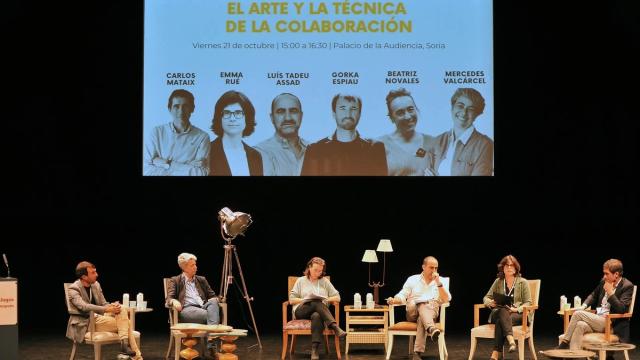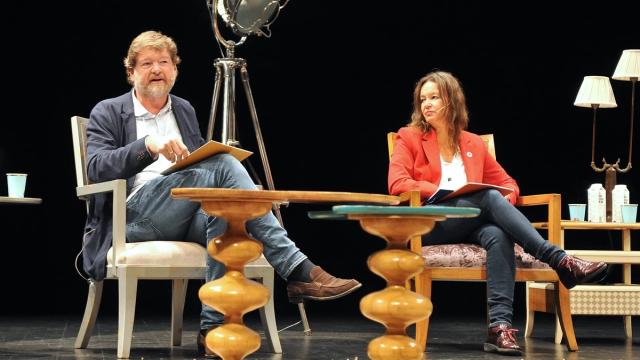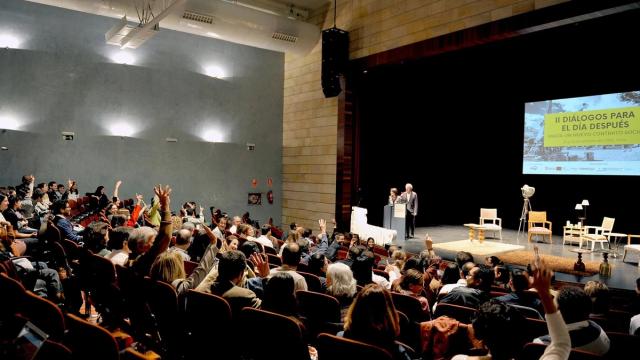Building a New Social Contract: Outcomes from the "Dialogues for the Day After" Conference
In its second edition, this annual multi-stakeholder event discussed how to build a new social, intergenerational, and territorial contract that contributes to achieving the SDGs.
Under the slogan "Towards a new social contract", the second edition of the Dialogues for the Day After took place in Soria, Spain on October 21 and 22, with the support of SDSN. This initiative is the flagship conference of the cross-sectoral platform El Día Después (The Day After), an alliance designed to generate transformative partnerships that address the challenges posed by the Sustainable Development Goals (SDGs). The platform was launched in 2020 by REDS / SDSN Spain in collaboration with other members and partners of the network such as ISGlobal, itdUPM, and Iberdrola.
National and international speakers, together with audiences from various backgrounds and interests, discussed how to build a new social, intergenerational and territorial contract that guarantees social justice and promotes the 2030 Agenda over two days of debates, conducted by the political scientist Cristina Monge and the journalist Juan Luis Cano. The sessions also addressed current sustainability challenges such as climate change, social and territorial cohesion, global health, and the need for alliances.
During Day 1, renowned experts such as Antón Costas, president of the Economic and Social Council of Spain, and Miquel Roca, lawyer and one of the seven authors of the Spanish Constitution of 1978, discussed what the social contract is. The day closed with an intersectoral dialogue dedicated to the art and technique of collaboration, with a conversation focused on the opportunities and difficulties posed by public-private-social collaboration.
During Day 2, the debates focused on the sustainability challenges, ranging from inclusion to climate change, with the participation of experts from the Barcelona Institute for Global Health, UNICEF, and the European External Action Service. The importance of integrating the social contract with global challenges such as the climate crisis and planetary health, the ecological transition of cities and territories as an opportunity to shape the territorial dimension of the social contract, and the promotion of Latin American and Caribbean - Europe relations as the basis of mutual development, were the main topics that took place this last day.
Check out the videos of all sessions (in Spanish), also available in podcast format.


